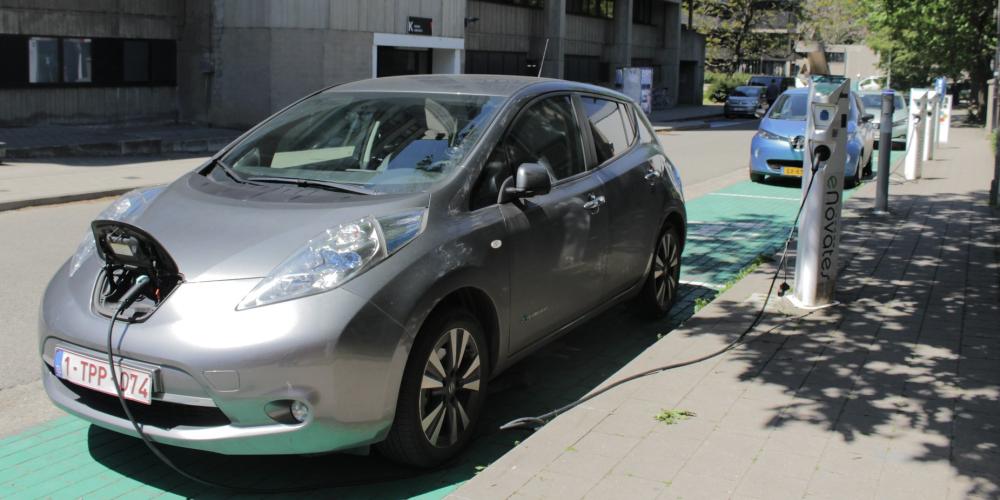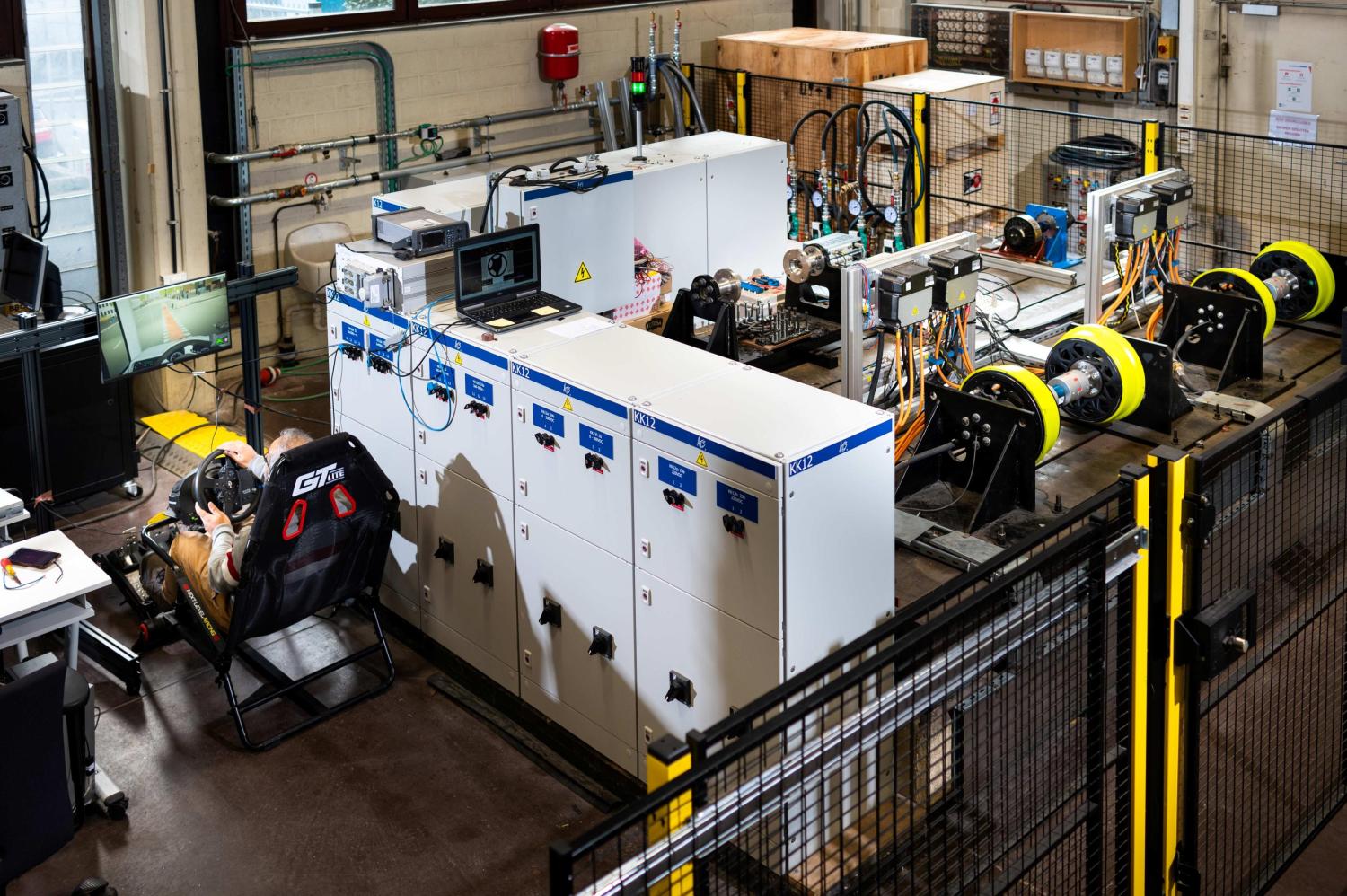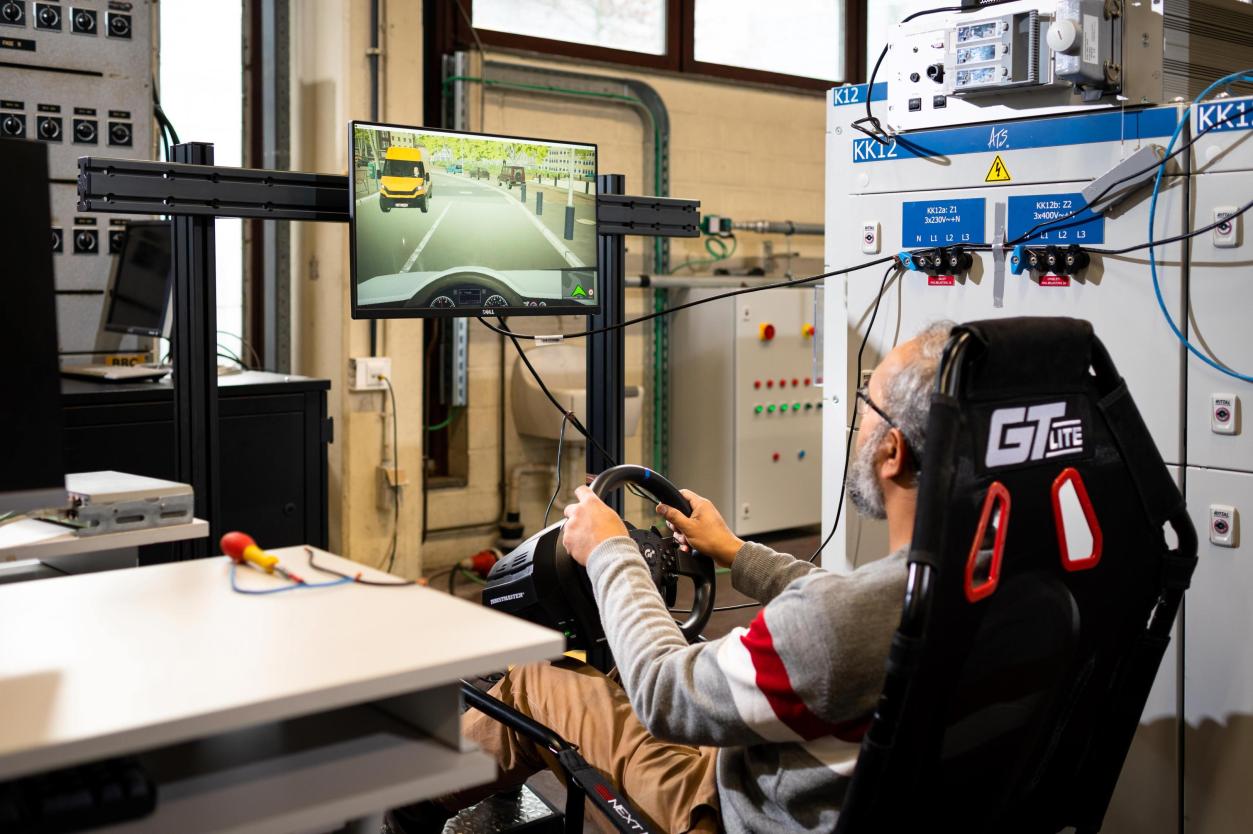
Scientists at VUB were carrying out pioneering research on electric cars all the way back in 1979. With the research group MOBI, the VUB is still at the forefront of this field, and is hosting the seminar From Electric to Autonomous Vehicles on 27 March. MOBI founder and director Professor Joeri Van Mierlo sees the electric car slowly but surely supplanting the petrol or diesel-powered car. Revolutions are usually evolutions.
MOBI seminar 2024 from electric to autonomous vehicles on 27 march
What is the state of play for the autonomous car?
Joeri Van Mierlo: “The autonomous car is emerging step by step. Before, a driver had to do everything themselves. Now most cars have all kinds of technical gadgets that allow partly autonomous driving. Lane assist, for example, to keep the car within the lane, or intelligent lights that turn as you take a corner. Another example is the technology that makes a car stop spontaneously when it runs into a car in front.

“An electric car doesn’t have a bag of small batteries, but one gigantic battery weighing several hundred kilos”
“The question is: when will cars start driving fully autonomously without a driver?
That remains a pipe dream. After all, this is not only about technology, but also about legal and moral issues. Who is responsible for driving behaviour? Leaving decisions to a computer is a big step. Suppose an old lady suddenly crosses the road and on the other side two small children run out in front of the car. Which way does the car swerve when it’s too late to brake? Do you leave that to a computer or to the impulse of the driver? I think it will be some time before that is left up to a computer. Instinctively, people will still want a human being to keep an eye on things.”
The electric car doesn’t have such a sustainable image because of the battery
“The battery has never had a sustainable image. I have one of those bags at home where I keep all my batteries for recycling, because we know batteries shouldn’t end up in nature. In an electric car there isn’t a bag of small batteries, but one gigantic battery weighing several hundred kilos.
“We have to recycle that battery, not only because of the environment but also from an economic and strategic point of view. Economically, because those batteries require a lot of expensive raw materials. We can’t find them in Belgium and they’re limited in Europe, so we have to get them from other countries. Fortunately, the materials for the battery can be recycled, which makes you more independent of the producer. With petroleum, you don’t have that.”
"You see now how those barriers to electric driving are crumbling one by one"
“If you look at the total picture, even taking into account the environmental impact of batteries, electric cars are still more environmentally interesting than fuel cars. The scientific analysis looks at the whole life cycle of a car: not only the exhaust emissions when the vehicle is used, but also emissions during production of the electricity and production of the vehicle itself. If you add all that up, you see that electric cars in Belgium score three to four times better than conventional technologies.”

MOBI Electromobility Research Centre
What is the state of the battle between the fuel car and the electric car?
“In my view, that battle has been fought. The VUB is a pioneer in electric cars. We analysed consumer behaviour 10 years ago and investigated the biggest barriers to the introduction of electric vehicles. You can now see how those barriers are crumbling one by one. The cost of the battery has become 10 times cheaper in 10 years. Back then they could only drive 100km; today they can cover 400 to 500km. The purchase price is a major bottleneck now but it will continue to fall. I expect the price of a battery to drop by another factor of 10 by 2030, making the car much cheaper as well. The electric car will eventually supplant the fuel car.”
“I think Europe will eventually become stricter on imported cars”
Can Europe compete with the US and China on electric cars?
“In the United States, development is slower. Americans like to drive around in big pickup trucks and the resistance to change is a bit greater than in Europe. But in Asia, and especially in China, things are moving forward at a tremendous pace. China has bought up a lot of strategic mines with battery resources all over the world, so they have the raw materials for their production. They produce the vehicles in a cheaper way than we do. I suspect the quality is also a little less than in Europe, but they are certainly a major competitor to the European auto industry.
“The quality cars still come from Europe. We are also known for the finish of the vehicle, the high-quality interior and the driving quality. Europe is also very strict on batteries and how the materials for the batteries are mined. I think Europe will eventually become stricter on imported cars. They will have to meet the same environmental rules and I expect to see more protectionism in Europe for its own brands.


